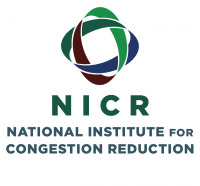Scholar Commons > College of Engineering > Center for Urban Transportation Research (CUTR) > CUTR_JOURNALS > JPT > Vol. 22 (2020) > No. 2
Article Title
Abstract
This paper explores how an epidemic impacts ridership on public transportation. The scanner panel data on credit and debit card transactions provide an important opportunity for researchers to gather empirical evidence on how the outbreak of a disease can substantially affect public transit ridership in relation to the socioeconomic heterogeneity of the commuters. For example, transit mode decisions of consumers in the highest and lowest income classes remained largely consistent, while consumers in the middle-income class demonstrated a reduction in public transit ridership and instead switched to private transport use by a considerable margin. Our findings add important empirical knowledge about individual decisions between public transit and private vehicle use during an epidemic. Such estimated effect is qualitatively different from those of other macroeconomic factors and provides important guidance for policy interventions and practical decisions aimed at sustaining economic growth.
DOI
https://doi.org/10.5038/2375-0901.22.2.1
Recommended Citation
Jung, Hojin.
2020.
The Impact of an Epidemic on Transit Ridership.
Journal of Public Transportation, 22 (2): .
DOI: https://doi.org/10.5038/2375-0901.22.2.1
Available at:
https://scholarcommons.usf.edu/jpt/vol22/iss2/1
Included in
Macroeconomics Commons, Management Sciences and Quantitative Methods Commons, Marketing Commons, Tourism and Travel Commons





